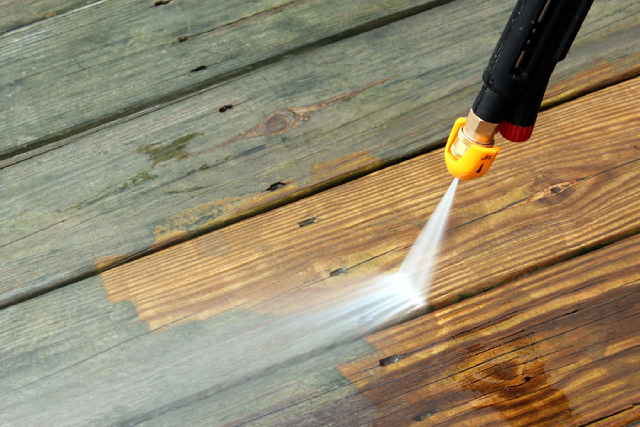Pressure Washing vs. Power Washing: How Are They Different?

“Pressure washing” and “power washing” are two different terms many people use interchangeably. Although these tools are both used for commercial and industrial cleaning at high water pressures, they are quite different and should, therefore, be distinguished from each other. However, due to their similarities, many people, even those with experience using these tools, easily miss the difference.
If you find it difficult to differentiate a high-pressure cleaner from a power washer, read on as this article explains in detail the crucial difference between these two powerful cleaning tools.
Pressure Washing
A pressure washer is a mechanical tool that sprinkles water at high pressures in order to clean big and sturdy surfaces, such as roads, buildings, and farm equipment. With its powerful spray, a pressure washer has the ability to eliminate loose paint, dust, dirt, mud, grime, and even mould from surfaces. It may also be used during disaster clean-ups when the risk of injury during manual cleaning may be higher.
Power Washing
Just like a pressure washer, a power washer is a mechanical sprayer that makes use of a high-pressure stream of water to get rid of different materials, such as dirt, grime, and mould, from outdoor surfaces. To effectively do this, a power washer makes use of extremely hot water instead of warm. The combination of hot water temperature and high pressure makes the power washer an excellent solution when it comes to removing all those stubbornly stuck materials from surfaces.
The key difference between pressure washing and power washing
As can be gleaned from the aforementioned definitions of a pressure washer and a power washer, the most crucial difference between them is heat. A pressure wash simply makes use of high pressure to powerfully spray water and wash away different kinds of materials, from dirt to mould. On the other hand, a power washer does the same thing, except that the water it uses is heated.
Both tools are ideal for very similar applications. However, the heat used in a power washer increases the performance and efficiency of the tool and helps to eliminate extremely difficult-to-remove materials, such as grease, mildew, and aged stains. In terms of affordability, pressure washers can generally be acquired for a relatively lower price, while power washers are the more expensive and heavy-duty version that is most typically used in commercial and industrial environments for cleaning concrete surfaces.
Therefore, if you are looking to purchase a high-power cleaner for household applications, a pressure washer is definitely the way to go. This tool will enable you to clean surfaces thoroughly without the excessive risk of damaging them. Compared to power washing, pressure washing tends to be less harsh on surfaces.
On the other hand, for larger and more difficult jobs, a power washer is necessary because of its increased cleaning speed and efficiency. The heated water used in power washing shakes dirt and grime-free more easily and even helps with getting rid of weeds and other similar materials. However, because power washers are a bit more dangerous to use than pressure washers, it is often best to leave their use to the professionals.
Conclusion
Although pressure washers and power washers have plenty of similarities in the sense that they are both used to clean external surfaces in commercial and industrial settings, these two powerful tools are quite different from each other. Knowing what makes a pressure washer different from a power washer is important so that you can easily identify which cleaning tool is more suitable to use for a specific surface or in a particular situation.
When purchasing high-power tools, such as pressure/power washers, water pumps, plunger pumps, and wet and dry vacuum cleaners in Singapore, be sure to always consult your provider about their ideal applications to avoid any accident or injury during their use.

